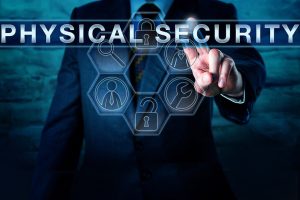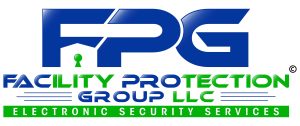 In today’s digital age, where cybersecurity often takes the spotlight, it is crucial not to overlook the importance of physical security for your organization. Physical security involves protecting your personnel, assets, and sensitive information from physical threats such as theft, vandalism, and unauthorized access. By implementing effective physical security measures, you can create a safer environment, safeguard your valuable assets, and instill confidence in your employees and customers. The following guide will explore 12 strategies for enhancing physical security in your organization. These strategies are derived from a deep-dive analysis of multiple reference articles from reputable sources in the industry.
In today’s digital age, where cybersecurity often takes the spotlight, it is crucial not to overlook the importance of physical security for your organization. Physical security involves protecting your personnel, assets, and sensitive information from physical threats such as theft, vandalism, and unauthorized access. By implementing effective physical security measures, you can create a safer environment, safeguard your valuable assets, and instill confidence in your employees and customers. The following guide will explore 12 strategies for enhancing physical security in your organization. These strategies are derived from a deep-dive analysis of multiple reference articles from reputable sources in the industry.
The Importance of Physical Security
Before diving into the strategies, let’s briefly discuss why physical security is important. Physical security measures are essential for several reasons:
- Asset Protection: Physical security helps protect your organization’s assets, including buildings, equipment, inventory, and intellectual property, from theft, damage, or unauthorized access.
- Personnel Safety: Ensuring the safety of your employees, visitors, and customers is paramount. By implementing physical security measures, you create a secure environment that fosters trust and well-being.
- Risk Mitigation: Physical security measures help mitigate risks associated with workplace violence, burglary, natural disasters, and other physical threats, minimizing potential losses.
Now that we understand the importance of physical security, let’s explore the strategies you can implement to enhance it in your organization.
1. Access Control
Implementing access control measures is a fundamental strategy for enhancing physical security. Key cards, biometric readers, or security personnel combined with an intelligent key management system can help control who enters the building or specific areas within the premises. This enables you to prevent unauthorized access, protect against theft and vandalism, and maintain a secure environment.
2. Video Surveillance
Video surveillance is an essential component of physical security. By installing video cameras in strategic locations and monitoring them, you can detect and deter criminal activity. Video footage can also serve as valuable evidence in the event of a security breach, aiding in investigations and potential legal proceedings.
3. Lighting
Proper lighting plays a critical role in deterring criminal activity and improving overall visibility. Well-lit areas help create a sense of security and reduce the risk of accidents and injuries. Ensure that exterior areas, parking lots, entrances, and other critical areas are well-illuminated to discourage potential threats.
4. Perimeter Security
Securing the perimeter of your business premises is vital for preventing unauthorized entry and protecting against theft and vandalism. Fencing, gates, and other physical barriers can help control access and create a boundary between your property and the outside world. Regularly inspect and maintain these security measures to ensure their effectiveness.
5. Intrusion Detection Systems
Intrusion detection systems provide an additional layer of security by alerting security personnel to unauthorized access attempts, including forced entry. These systems can help prevent theft, vandalism, and provide an early warning system for potential security breaches. Consider integrating intrusion detection systems with your access control and alarm systems for comprehensive protection.
6. Alarm Systems
Alarm systems are a crucial component of physical security. They serve as a deterrent, alerting security personnel and local law enforcement to potential security breaches. Alarm systems can help prevent theft, vandalism, and provide a rapid response in the event of a security incident. Ensure that your alarm systems are regularly tested and well-maintained for optimal performance.
7. Safe Storage
Protecting sensitive information, cash, and other valuables is essential for maintaining physical security. Safes, lockers, and other secure storage systems can help prevent theft and protect against unauthorized access. Consider using intelligent locker systems that control access and automatically record the use of important assets such as laptops, radios, cell phones, scanners, and documents.
8. Background Checks
Conducting thorough background checks on employees and contractors can help prevent insider threats and unauthorized access to sensitive information and intellectual property. Background checks provide insights into an individual’s history, identifying any potential risks or red flags. By implementing this strategy, you can mitigate the risk of theft and protect your business assets.
9. Training
Properly training employees on security procedures and protocols is essential for enhancing physical security. Educate your staff on access control measures, emergency response plans, and how to identify and report suspicious activity. By providing comprehensive training, you can minimize human error, improve overall security awareness, and foster a culture of safety within your organization.
10. Emergency Preparedness
Developing and implementing emergency response plans is crucial for mitigating the impact of security incidents and ensuring the safety of your employees and visitors. Establish procedures for responding to incidents such as fires, natural disasters, or criminal activity. Conduct regular drills and training exercises to familiarize everyone with emergency protocols and ensure a swift and effective response.
11. Vendor and Visitor Management
Managing vendor and visitor access is an often overlooked aspect of physical security. Implement a robust vendor and visitor management system to control and monitor external access to your premises. Require identification, issue temporary access badges, and ensure that vendors and visitors are accompanied by authorized personnel. This helps prevent unauthorized access and reduces the risk of theft or damage.
12. Regular Security Audits and Reviews
Conducting regular security audits and reviews is essential for maintaining the effectiveness of your physical security measures. Regularly assess your security infrastructure, identify vulnerabilities, and address any weaknesses or gaps. Stay updated with the latest security technologies and industry best practices to ensure that your physical security remains strong and adaptive to evolving threats.
By implementing these strategies, you can significantly enhance the physical security of your business. Protecting your assets, employees, and visitors from theft, vandalism, and other forms of criminal activity creates a safe and secure environment. Remember, physical security is an ongoing process that requires continual evaluation, maintenance, and improvement to stay ahead of potential threats.
Contact Us (877-762-6460) for a free consultation!
View Past Projects
—
 About Facility Protection Group
About Facility Protection Group
Facility Protection Group is a Certified Systems Integrator based in the Southeastern United States, specializing in electronic security services supporting both traditional and cloud based Access Control (Card Access), Video Surveillance / CCTV, Audio / Video Intercoms, and Intrusion Alarm Systems. Founded in 2018 and located in Tampa, Florida; Facility Protection Group has assembled a team that has a tremendous wealth of industry knowledge and experience.

 About Facility Protection Group
About Facility Protection Group